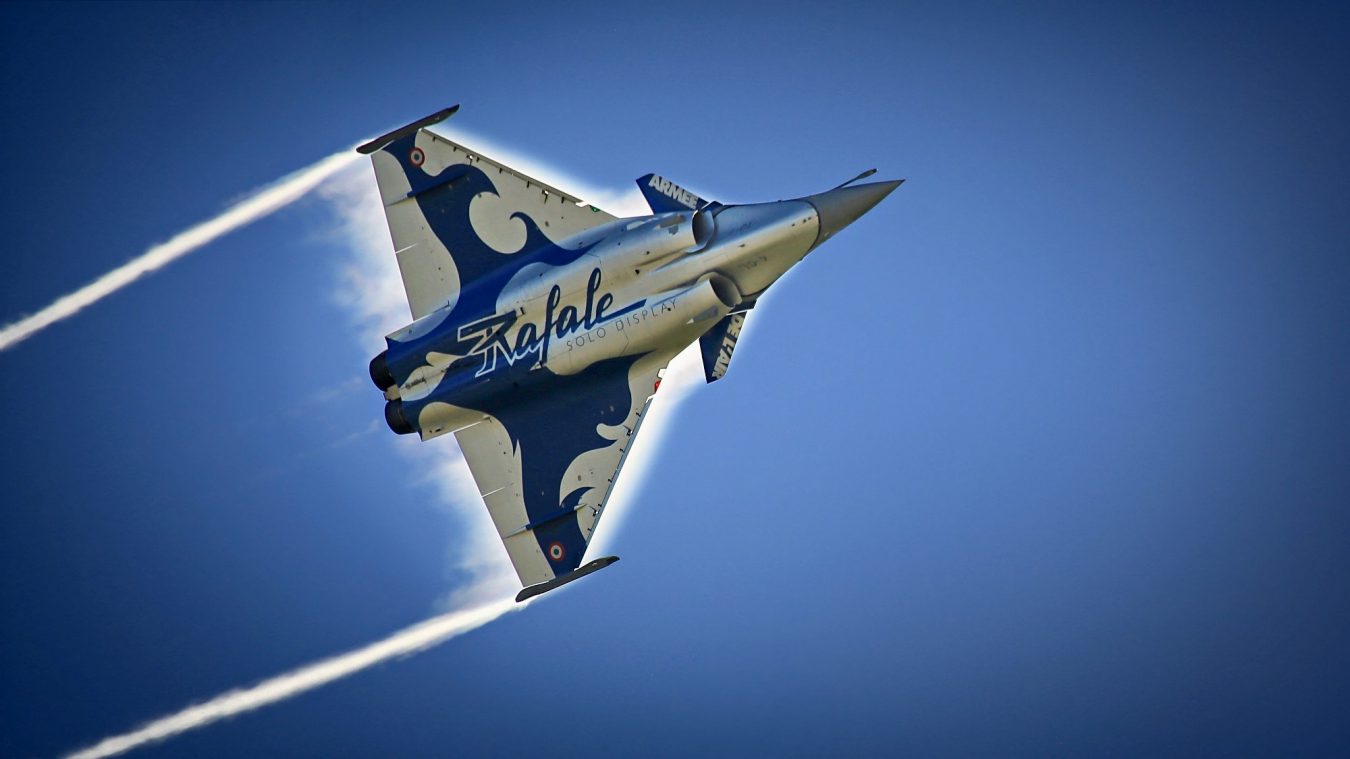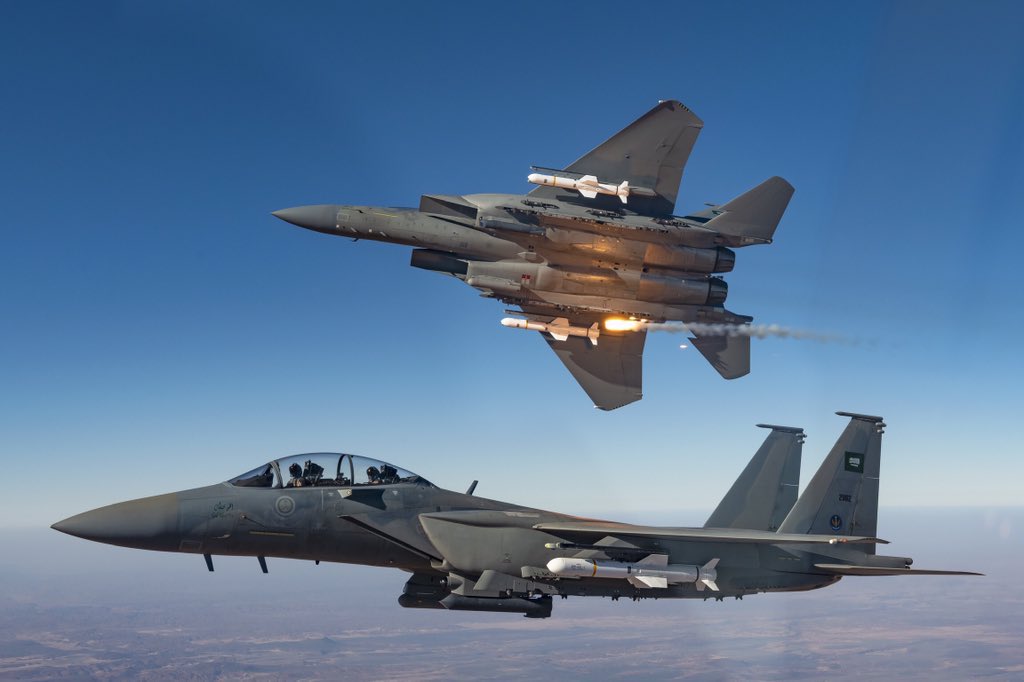Almost two years after the UAE signed a contract for buying 80 Rafales, its closest neighbor and ally in the region, Saudi Arabia, is also mulling to purchase the French aircraft as ties with the United States remain strained.
After months of speculations that the Saudi kingdom would relinquish its age-old tradition of using only American and British fighter jets in favor of the French Rafales, reports have resurfaced suggesting that the kingdom is seriously considering the purchase of the Dassault Rafale fighter.
Saudi Arabia has spent decades constituting a sizable air force entirely of cutting-edge US and British fighter jets. The Royal Saudi Air Force primarily comprises US F-15E fighters, Panavia Tornado, and Eurofighter Typhoons.
Riyadh’s interest in acquiring French jets may indicate that it no longer trusts its previous fighter suppliers as much as it once did. Any such decision by the kingdom is also expected to strain ties between the two traditional allies, as the US has been the major arms supplier to the country.
Late last year, some anonymous sources cited in an article published in France’s La Tribune journal stated that Saudi Arabia was considering purchasing 100 to 200 Dassault Rafale jets.
At the time, military watchers noted that the kingdom was likely of the opinion that its dependable jet suppliers might not be so reliable going forward, especially against the backdrop of the protracted Ukraine war.
Although not officially acknowledged by the officials in the kingdom, the reports may come as yet another setback to the US arms industry, which is believed to be steadily losing ground to European and even Chinese and Russian arms manufacturers in the Middle Eastern region.
For instance, in December 2021, another US ally, UAE, signed a contract to purchase 80 F4 Rafale fighters, the latest variant of the 4.5-generation fighter aircraft. At the time, the agreement was labeled as historic because it was to make the Emirati Air Force the biggest operator of Rafales outside of France.

However, if the rumors about the Saudi Air Force’s willingness to procure the Rafale do stand true, it would surpass the “historic” acquisition by the Emirati Air Force. In addition, some reports in the French media stated earlier that Qatar was reportedly buying 24 extra Dassault-made planes and upgrading its existing fleet.
Since Saudi Arabia and the US are already locked in a tense relationship, there are concerns that the purchase of Rafales by Riyadh would further widen the rift between Riyadh and Washington, which peaked in October on the oil production cuts.
In October 2022, the decision by the oil-producing OPEC+ cartel to cut oil production triggered a fierce response from the United States, which accused Saudi Arabia of coercing other members of the grouping to cut production. An angry war of words followed between the two, with the Biden administration and US lawmakers asking the relationship be reevaluated.
Although the rhetoric has somewhat dampened now, it suggests that Saudi Arabia is looking to widen the options for its military purchases. In fact, with the apparent disenchantment between the two countries, US adversary China has also been making swift inroads into the country, with arms agreements said to be in the works.
Another reason cited for Saudi Arabia to purchase arms outside of the US and the UK is the ongoing Ukraine war, which has kept them occupied with production and deliveries explicitly intended for Ukraine.
In May this year, unconfirmed reports suggested that the Saudi Arabian Military Industries (SAMI) was negotiating arms deals with state-owned China North Industries Group Corporation (Norinco).
What Is In Store For The Royal Saudi Air Force?
If Saudi Arabia joins the Rafale league, it will be the third country in the region to operate the French aircraft. Incidentally, when the UAE chose Rafale fighters, it was believed to be a decision taken due to American reluctance to supply the F-35 fighter jets to the Emirati kingdom, suggesting that all was not well between the two.
Western countries have shown general reluctance in supplying sophisticated arms like fighter jets to countries accused of human rights violations. The Saudi Arabia-UAE coalition that fights the Houthi rebels in Yemen is accused of widespread rights violations of civilians, triggering some official and some unstated embargos.
For instance, Germany declared in July that it would not permit Saudi Arabia to receive more Eurofighter Typhoons. Behind the US-made F-15s, the Saudi Air Force’s 72 Eurofighters are the second most prevalent fighter type. This puts the Royal Saudi Air Force in a tight position.
Besides the Eurofighter Typhoons, the Saudi Arabian kingdom could request the US for the purchase of the F-15EX fighters, according to experts. The aircraft manufacturer recently signed an agreement with Indonesia and is looking for global buyers. However, there have been no talks about pitching the aircraft to Riyadh despite it having a large fleet of the F-15E in its arsenal.
Moreover, military experts believe that Saudi Arabia’s growing military cooperation with American adversary China and its recently forged truce with arch-enemy Iran do not augur well for any such possible purchase.

In comparison to countries like the US and Germany, which have generally taken a hardened stance against supplying equipment that could be used to cause human rights violations anywhere, France has been an aberration and remained more accommodating.
For instance, France has sold armored vehicles, helicopters, artillery, air-to-ground Damocles targeting pods, and SCALP cruise missiles to Riyadh without hesitation. This has likely given Rafale fighters a favorable precedent for the Saudi leadership.
- Contact the author at sakshi.tiwari9555(at)gmail.com
- Follow EurAsian Times on Google News




